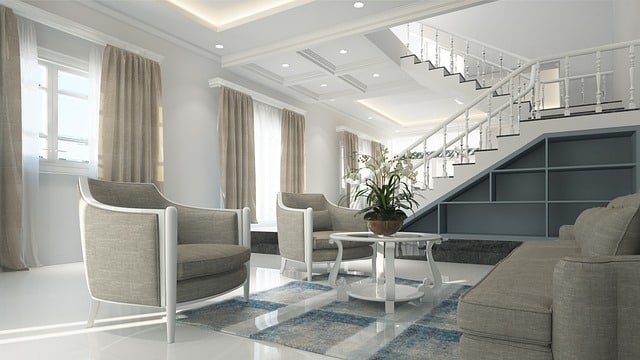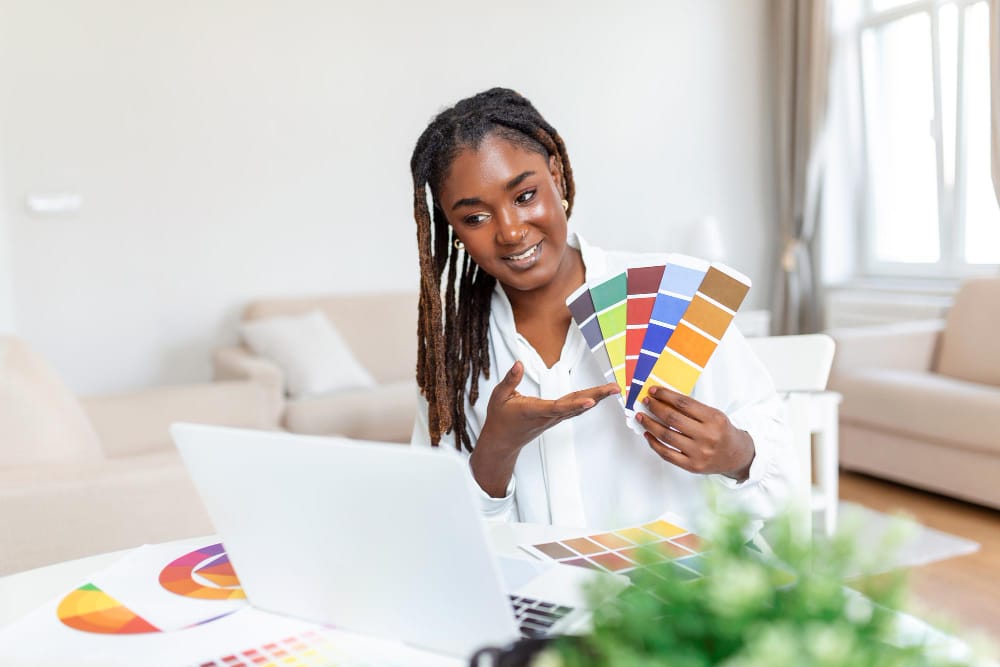Are you passionate about creating beautiful spaces and transforming environments? Starting an interior design business in Nigeria could be an exciting and rewarding venture for you. With more people investing in their homes and offices, the demand for skilled interior designers is rising.
But how exactly do you get started? What skills do you need, and what steps should you follow to build a successful business? In this guide, we’ll explore all the important aspects of starting an interior design business in Nigeria, providing simple and practical advice for your journey.
You might wonder, “What qualifications do I need to start?” “How can I attract my first clients?” or “How do I manage the business side of things?” This guide will answer these questions and walk you through everything from building a portfolio to marketing your services. Whether you’re just getting started or looking to grow your business, you’ll find useful tips that will help you build a solid foundation and succeed in the competitive Nigerian market.
Interior Design Business, what it is?
An Interior Design Business is a service that helps people improve the look and feel of their indoor spaces, like homes, offices, hotels, and shops. It focuses on making spaces beautiful, comfortable, and practical by choosing the right colors, furniture, lighting, and decorations.
Interior designers plan how a space should be arranged to make the best use of it. They also make sure it is safe, well-organized, and suits the needs of the people using it. Their job is not just about style, it’s also about creating a space that feels right and functions well.
Since it’s a business, interior designers earn money by helping clients design or upgrade their spaces. They can work alone, with a team, or run a company that offers design and decoration services.

Key Skills and Requirements for Success in Interior Design Business
Starting an interior design business goes beyond just knowing how to decorate a space. It requires creativity, attention to detail, and a deep understanding of your client’s needs. To be successful, you’ll need to develop several important skills, including:
1. Creativity and Artistic Vision: Interior design is all about bringing ideas to life. You need to have a sharp eye for design and be able to visualize how different elements (furniture, colors, textures) work together to create a cohesive look.
2. Communication Skills: You’ll work closely with clients to understand their vision. Being able to communicate, ask the right questions, and explain design choices is very important to clients.
3. Understanding Trends: The interior design industry evolves constantly. It’s crucial to stay updated on the latest design trends and adapt them to suit your client’s taste and the local Nigerian culture.
Related Posts:
- Local Business Ideas.
-
4 Best Offline Local Businesses to Start with Little or No Money in Nigeria.
-
Discover 14 Profitable Craft Business Ideas to Sell Locally in Nigeria
-
How to Start a Plant Nursery Business and Make Passive Income

Step 1. Essential Preparations Before Launching Your Business
Before you think of starting your business, there are a few essential steps to take that will set you up for success. here it is listed below:
1. Education and Training: While a formal degree in interior design is not mandatory, getting some professional training or certification will give you an edge. You can take courses, attend workshops, or even study design at a university. This will not only boost your skills but also your credibility.
2. Building Experience: Try to work with experienced interior designers or offer to do small projects for friends or family. The more experience you have, the more confident you’ll be in handling client requests, so start now.
3. Create a Portfolio: A portfolio is essential for showing potential clients your style and expertise. Even if you don’t have paid projects yet, start by documenting personal projects or mockups. This will help you showcase your talent and attract future clients.
4. Business Registration: Before starting your interior design business, it’s important to officially register your business with the Corporate Affairs Commission (CAC) in Nigeria. Registering your business helps to establish its legitimacy, protect your brand, and ensure compliance with Nigerian business laws.
You can choose from various business structures, such as a sole proprietorship, partnership, or limited liability company, depending on your business needs. Business registration also provides you with a Tax Identification Number (TIN) and makes it easier to access funding or open a business bank account too.
Step 2. Crafting a Winning Business Plan
A solid business plan is the foundation of any successful business. It helps you define your goals, target audience, and financial strategies. Here’s how to get started with your business plan:
1. Research the Market: Understand your competition and what potential clients are looking for. Are they more interested in residential or commercial design? Knowing your niche or area of focus will help you stand out.
2. Set Clear Goals: Define your short-term and long-term goals. For example, your short-term goal might be to complete five projects in the first year, while your long-term goal could be to open a design studio.
3. Create a Budget: Determine how much money you need to get started, including expenses for tools, marketing, and any legal costs. Be realistic about your financial expectations, and ensure you have enough savings or funding to support the business.

Step 3. Building Your Brand and Online Presence
In today’s world, most businesses thrive online. Here’s how to build your brand and attract clients:
1. Build a Stunning Portfolio: Make sure your portfolio is well-organized, showcasing your best work. Use high-quality photos and offer before-and-after images for clients to see the transformation you can achieve.
2. Set Up a Website and Social Media Accounts: Create a simple, professional website that displays your services, contact information, and portfolio. Use social media platforms like Instagram, Facebook, and Pinterest to share design tips and showcase your projects. Social media is a great way to engage with potential clients and build your brand online.
4. Marketing: Use ads and regular content to keep your audience engaged. Consider collaborating with local influencers or running promotions to attract more clients. You can also attend local design exhibitions or home décor events to network and showcase your skills.

Step 4. Setting Up Your Business Infrastructure
Running a business involves more than just design work. You’ll need to manage operations efficiently.
1. Building a Team: Depending on your workload, you may need to hire employees or collaborate with freelancers like carpenters, electricians, or contractors. Choose partners you can trust and who align with your business values.
2. Administrative Work: Set up systems for managing client contracts, invoicing, and scheduling. This will help you stay organized and avoid mistakes that could harm your reputation.
3. Technology Tools: Use design software like AutoCAD or SketchUp for creating layouts and presentations. You can also use tools like Trello or Asana to manage projects and deadlines efficiently.
Step 5. Managing Client Relationships and Expectations
A big part of being a successful interior designer is maintaining strong relationships with your clients. Here’s how to do it:
1. Effective Communication: Regularly update your clients on the progress of their projects. Make sure you understand their needs and preferences clearly before starting any work. Address concerns promptly and professionally to build trust.
2. Focus on the Experience: Designing a space is not just about choosing the right furniture and colors; it’s about creating an experience. Ensure that the design process is as enjoyable for your client as the final product.

Step 6. Budget-Friendly Design and Cost Management
Many Nigerian clients have a specific budget in mind. It’s important to provide value without exceeding their limits:
1. Source Affordable Materials: Look for ways to reduce costs without compromising on quality. You can negotiate better rates with suppliers or find affordable alternatives for expensive materials.
2. Offer Budget-Friendly Solutions: Focus on design ideas that make a big impact without needing huge investments, like repainting walls, rearranging furniture, or using secondhand items.
Step 7. Networking and Expanding Your Reach
Networking is key to growing your business. Here’s how to do it effectively:
1. Collaborate with Others: Work with other designers, architects, and suppliers. This will help you grow your network and gain referrals.
2. Attend Industry Events: Go to design exhibitions, trade shows, or conferences to meet new people, learn about trends, and make valuable connections.
Step 8. Continuous Learning and Adapting to Industry Changes
The design industry is always evolving, so it’s important to keep up with new trends and technologies. Attend workshops, read design blogs, and keep refining your skills. This will ensure your business remains competitive and relevant. You can also join an interior designers group to acquire more foreign experience, like the Maimi interior designers.

Frequently Ask Questions and Answers
Conclusion
Starting an interior design business in Nigeria can feel like a huge challenge at first, but trust me, it’s an incredibly rewarding journey if you approach it with the right mindset. Yes, there will be obstacles along the way, from handling tricky clients to managing budgets and keeping up with the latest design trends. But don’t let that discourage you! Every successful business faces challenges, and these hurdles are what help you grow, learn, and ultimately succeed.
The good news is that the interior design industry in Nigeria is expanding, and the demand for fresh, unique designs is only going up. More and more people are investing in their homes and businesses, which means there are tons of opportunities out there for creative minds like yours. Whether you want to focus on residential designs, office spaces, or hospitality projects, there’s a niche for every type of designer.
The key is to stay adaptable and open to new ideas. The industry is constantly changing, and so are client expectations. Keep honing your skills, learn from your experiences, and always be open to trying new things. Building a successful business takes time, but with passion, dedication, and the right approach, you can make your mark in the Nigerian interior design scene.
So, take that first step with confidence and invest in your future!


